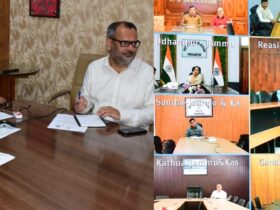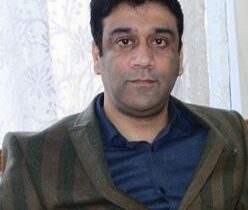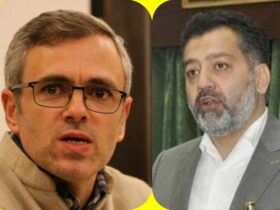(Opinions expressed in this article are of the author and not necessarily of the Kashmir Scenario)
We should have a State in which we could live and breathe as free men and which we could develop according to our own lights and culture and where principles of Islamic social justice could find free play: Muhammad Ali Jinnah
Muhammad Ali Jinnah’s stand is vindicated now. In India’s Hindu dominated UP state, Hindu extremists barged into the house of Muhammad Akhlaq, 50, of Dadri village. They beat him to death and then ruthlessly thrashed his son who is in critical condition in a hospital. The reason of this tumult was a piece of meat in the refrigerator.
Couple of days before Akhlaq’s death, an announcement was made in a temple near his house about a missing calf. In no time all the fingers pointed toward Akhlaq for having kidnapped the calf for consumption.
This is how a man was killed for a piece of beef in refrigerator, which later on after forensic tests doesn’t come out to be so, but simple mutton.
In Akhlaq’s case instead of raising the matter of the missing calf with the police, announcement was made in a temple, making religion an ammunition for communal conflict.
The recurring memory of Akhlaq being beaten to death by a mob has shook his family with terror. They are compelled to evacuvate from home!
With all such incidents picturing the void in homogenity in India, and failure in embodiment of the Islamic practices therein, the prophecy of Jinnah is translating to truth. Indian Muslims in view of episodes like the Dadri incident are held back through violent means from practicing and carrying the legacy of Islam.
Akhlaq’s family members who intend to leave their place, may find a shelter in Jinnah’s vindication, that safeguarded the Muslims in acceptance of distictness in the social orders of Islam and Hinduism.
The failure in understanding the diffrences of two different religious philosophies, social customs and literatures has today troubled the Muslims of India.
The clash of conflicting ideas and conceptions of these two diffrent civilizations has ripped Jawaharlal Nehru’s idea of secular, socialist India apart.
Nehru was convinced that Indian people could withstand the difference in heterogeneity with a common ground due to the same virtues, national heritage and moral as well as mental qualities.
On contrary what Jinnah had to say was: It is quite clear that Hindus and Muslims derive their inspirations from different sources of history. They have different epics, different heroes, and different episodes. Very often the hero of one is a foe of the other and, likewise, their victories and defeats overlap. To yoke together two such nations under a single state, one as a numerical minority and the other as a majority, must lead to growing discontent and final destruction of any fabric that may be so built for the government of such a state.
Nehru disagreed with Jinnah’s theory that India consisted of two nations.
Muhammd Akhlaq therefore seems to be the victim of the disagreement of aspects on life and life itself and the failure to bridge the gaps in India-of-diversity!

















Leave a Reply